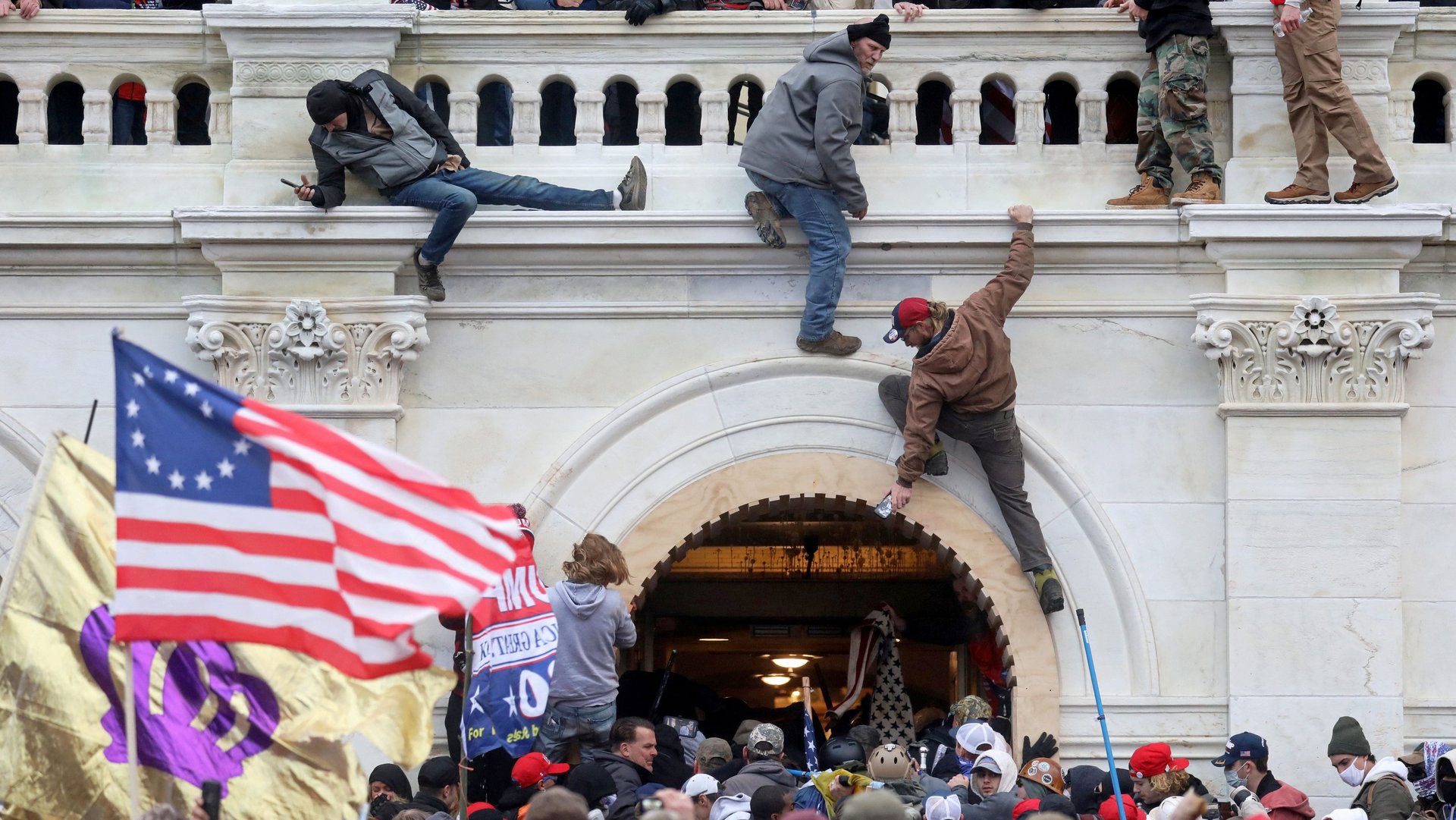Canadian intelligence experts are worried about the polarized, unpredictable US
A new report by Canadian national intelligence experts says that country faces new threats from a once unlikely source: the United States.


A new report by Canadian national intelligence experts says that country faces new threats from a once unlikely source: the United States.
The paper, published by a task force that includes two former directors of the Canadian Security Intelligence Service (Canada’s counterpart to the CIA), former national security advisors to Canada’s prime minister, academics, and other ex-diplomats and ministers, raises concerns about the effects of polarization and a “less predictable partner” in the US.
“Liberal democracy is increasingly being challenged by authoritarian governments who seek to weaken the rule of law, open trade, multilateralism, and human rights,” the authors write (PDF). “For Canada, such developments are especially concerning because they are occurring not only in states such as Hungary, Turkey, Poland, and Brazil, but also in the United States.”
“The United States is and will remain our closest ally, but it could also become a source of threat and instability,” the report states.
The trans-border effects of Fox News and US conservative media
Much of the task force’s assessment is focused on Canada’s preparedness for new and ever-evolving security risks from around the globe—whether they originate from the usual sources such as China and Russia, or are connected to extreme ideologies, new technological threats, or the effects of pandemics and climate change. Canada’s allies, including the UK and the US, have “a more sophisticated national security culture,” the authors write.
But a section about the threat to democracy from domestic sources in Canada looks specifically at the US influence on that growing problem, such as during the month-long truck convoy protest in Ottawa earlier this year, and related blockades of the US-Canada border. The convoys were “a disturbing taste of the harm a small group of determined protestors could inflict on people and the economy,” the authors write.
During the protests, which were sparked as a response to pandemic restrictions but became a general anti-government display, some supporters reportedly called for an attack like that seen at the US Capitol on January 6, 2021. About half of the international funding raised for the protests came from the US, and Americans both crossed the border to join the protest and help jam Ottawa’s 911 lines, according to Politico.
It “quickly became apparent that there were ties between far-right extremists in Canada and the United States,” the new report says, specifically naming open support for the convoy from “conservative media, including Fox News,” as part of the problem.
The authors continue: “This may not have represented foreign interference in the conventional sense since it was not the result of actions of a foreign government. But it did represent, arguably, a greater threat to Canadian democracy than the actions of any state other than the United States.”
Monitoring this threat, they write, will be complicated by the fact that “it emanates from the same country that is by far our greatest source of intelligence.” (Elsewhere, the reports notes that Canada has relied on other nations for protection since Europeans first settled there—”first France, then Britain, now the United States.”)
The authors also urge Canada’s national security agencies to contend with far-right groups at home that have built ties with like-minded political groups in the US. “Whether anti-government, antisemitic, Islamophobic, anti-Asian, or misogynistic in nature, these groups reflect global trends that must be addressed at their roots,” the report says.
Canada needs to monitor developments related to Russia, China, al-Qaeda… and the US
Thomas Juneau, co-director of the task force and associate professor at the Graduate School of Public and International Affairs at the University of Ottawa, which spearheaded the report, reiterated some of the same points in an interview with CBC news, saying that there are “serious risks of democratic backsliding in the U.S.” that are “not theoretical” and could make Canada’s democratic institutions less secure.
(The report also notes that Canada must now grapple with an existential question: “Should scenarios of widespread political violence in our southern neighbour materialize, how should Canada respond?”)
When people think about threats to Canada, they might think about foreign states, the rise of China, Russia’s invasion of Ukraine, or al-Qaeda, and “all of these are true,” Juneau told the news outlet, “But so is the rising threat to Canada that the US poses.”
Vincent Rigby, a senior adviser at the Center for Strategic and International Studies in Washington, recent security adviser to Canadian prime minister Justin Trudeau and co-director of the task force, told the CBC that it was time to have a new conversation with the US—but a polite one.
“It certainly would not be couched in a way of, ‘You’re the source of our problems.’” he said. “The conversation would be, ‘How can we help each other?'”